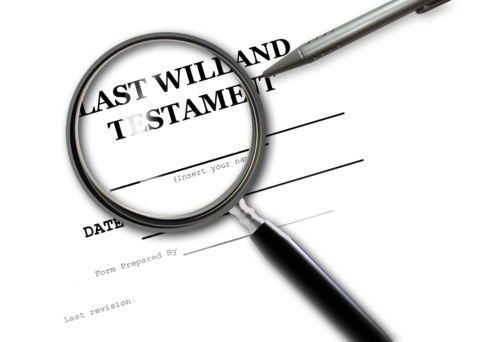Free Consultation
Available 24/7 for Immediate Help
(614) 263-5297

The death of a loved one is never an easy process. Emotions can run high. Sometimes, a family member believes the Will of a recently deceased relative does not reflect their loved one's true wishes. When this happens, an heir of the recently deceased may choose to challenge the Will. Because a Will challenge is a complicated process, I recommend hiring an experienced attorney who knows and understands Ohio probate law.
When challenging a Will in Ohio, the challenger claims that, for some reason, the Will is not valid. To challenge a Will, the challenger must meet two basic requirements. First, he or she must have standing. Second, the person challenging the Will must have grounds to do so.
Standing means that the person challenging the Will would receive money if the Will is found to be invalid. If the challenger would not receive anything under an invalid Will, he or she does not have standing and cannot proceed. People with standing usually include direct heirs like a child, step-child, or adopted child of the person who died, a person who received substantially less than a similarly situated relative, or someone who received money under one Will but was left out of a later Will.
Second, a person must have grounds to challenge a Will. They must provide the probate court with a legally recognized reason that the Will is not valid. A person has grounds to challenge a Will if they believe the requirements for making a valid Will were not met. Grounds for challenging a Will are as follows:
If you believe a Will is invalid but aren't sure whether you have standing and grounds to challenge the Will, contact an an Ohio probate attorney to help you decide if you can proceed. If you are the Executor of an estate and someone is challenging a Will, I recommend that you consult with an experienced probate attorney. A Will challenge is not something you want to try to handle yourself.
If someone believes that a Will is invalid, they must challenge the Will within 3 months after it was submitted to the probate court. This is one reason the person submitting the Will for probate is required to file a Notice of Probate of Will. It tells people who might wish to challenge the Will that the Will is being submitted to probate court. Once the heirs and potential beneficiaries receive notice that the Will is being probated court, they have 3 months in which to file a civil lawsuit challenging the Will.
A person wishing to challenge a Will must file a civil lawsuit in the probate court where the Will was submitted. They must provide notice of the lawsuit to all beneficiaries under the Will, all of the heirs of the Will maker, the Executor of the estate, and the Ohio Attorney general. The person challenging the Will is the plaintiff who must prove, by a preponderance of the evidence, that the Will is invalid.
A Will challenge can be avoided by having the Will admitted to probate before a person dies. In this case, as long as the Will is not removed from the probate court's possession, the Will cannot be challenged on grounds of a procedural error.
Whether you're challenging a Will or defending a Will challenge, it is important that you have a qualified, experienced Ohio probate attorney on your side. Contact us at Wolfe Legal Services today. I work with people throughout the greater Columbus area, including Dublin, Bexley, Upper Arlington, Marysville, Hilliard, Delaware and Newark, and throughout Franklin County, Delaware County, Union, and Licking County. Call (614) 263-5297 any time or complete our online form.
© 2026 Wolfe Legal Services
View Our Terms & Conditions | Privacy Policy
Website Maintained and Hosted by Adamedia & Adam The Computer Guy